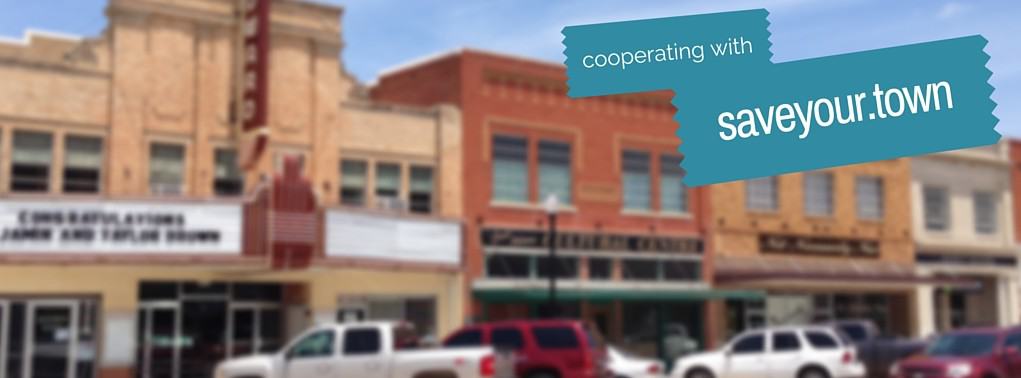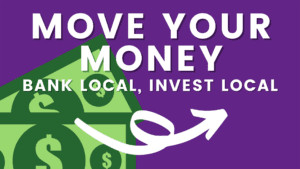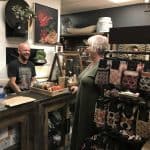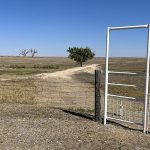At the recent Small Business 101 workshop in Alva, Oklahoma, two people with lending experience presented some secrets to getting a small business loan. Maybe these are not really secrets, but they are keys you’ll need to understand to get a small business loan.
Laura Girty, REI 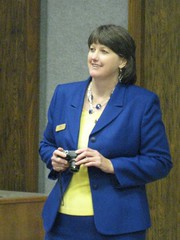 Laura Girty works with REI, Rural Enterprises of Oklahoma, Inc. I’ve known and worked with Laura for years in local community projects.
Laura Girty works with REI, Rural Enterprises of Oklahoma, Inc. I’ve known and worked with Laura for years in local community projects.
REI is a certified development company (CDC) licensed by the US Small Business Administration. They work with SBA and USDA Rural Development Business and Industry loans.
By going through a CDC like REI, you can get longer terms and lower rates than going directly through the bank. Your bank will still be involved, but the guarantee will help make the bank more comfortable, Laura said. People get turned down locally, and go to REI to start the SBA process. Sometimes bankers call directly in order to get the guarantee.
When loaning for blue sky value of an existing business, banks really like to be in partnership with SBA, Laura said. (“Blue sky value” is the value of an existing business over and above what its tangible assets are worth. We also used to call it “good will” in the accounting field.)
Top three reasons for using SBA loan guarantees:
- Start up business that has no record of income.
- Weak collateral.
- Need for longer a repayment period.
Equity requirements
You don’t get to borrow 100% of what you need. Sounds odd, doesn’t it? But what it means is that you have to invest something in the business yourself. Local banks usually require 20% equity. SBA guaranteed loans usually require 10%, Laura said. Some cases require an additional 5% or 10% of equity, like start ups or businesses with specialized facilities (think car washes – hard to make any other business work in a car wash building).
Applying
“I’m finding out that when you’re all done with the (SBA) application, it’s like that (3 inches thick),” Laura said.
“Packaging” lets you fill out one application to seek more than one SBA loan guarantee, like a 504 loan for the building, and a 7(a) on the inventory. If you apply at one time, you can have more than one SBA loan. If you do them separately, there is a certain waiting period.
Kari Roberts, Alfalfa County Bank Kari Roberts works for a local lender, Alfalfa County Bank, in Cherokee, Oklahoma. Previously, she worked with Laura in her small business. (In a small town, we all have connections.)
Kari Roberts works for a local lender, Alfalfa County Bank, in Cherokee, Oklahoma. Previously, she worked with Laura in her small business. (In a small town, we all have connections.)
Kari repeated a line you’ve probably heard, “The bank is the place you go to borrow money, after you’ve proven you don’t need to borrow the money.”
Documentation
All loans require some type of documentation. For small business loans, that usually means personal and business tax returns for the past three years, and a current credit report.
“If you are going into business, and you are not making your car payments on time, how are you going to make the thousands of dollars right?” Kari asked.
Kari listed the 6 C’s of commercial lending, the factors bankers consider to evaluate your loan application:
- collateral,
- capital (personal investment),
- cash flow,
- character (willingness to repay, credit score),
- capacity (legal stuff in order), and
- conditions (economic, etc.).
Looking at the financial statements, the lender will also calculate some basic ratios, like loan to value (80%), and revenue over payments (120%), Kari said. The ‘loan to value’ ratio means the amount being loaned is not more than 80% of the total value of the business. The ‘revenue over payments’ ratio means that your business generates at least 120% of the loan payment in revenue. You have to be able to make the payments!
Kari repeated that it’s very tough to borrow 100% of what you need for a business. Be prepared to have personal equity to invest.
Know your business
The benefit of doing an SBA loan is, paperwork is so extensive that you are going to know your business inside and out, Kari said.
This article is part of the Small Biz 100, a series of 100 practical hands-on posts for small business people and solo entrepreneurs, whether in a small town, the big city, or in between. If you have questions you’d like us to address in this series, leave a comment or send us an email at becky@smallbizsurvival.com.
- About the Author
- Latest by this Author
Becky started Small Biz Survival in 2006 to share rural business and community building stories and ideas with other small town business people. She and her husband have a small cattle ranch and are lifelong entrepreneurs. Becky is an international speaker on small business and rural topics.
